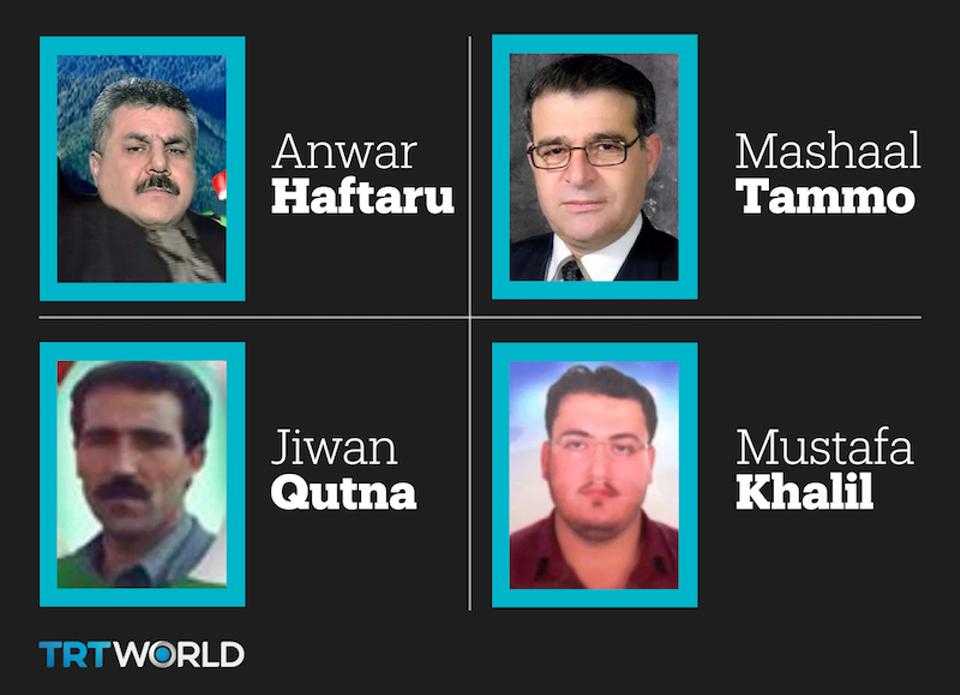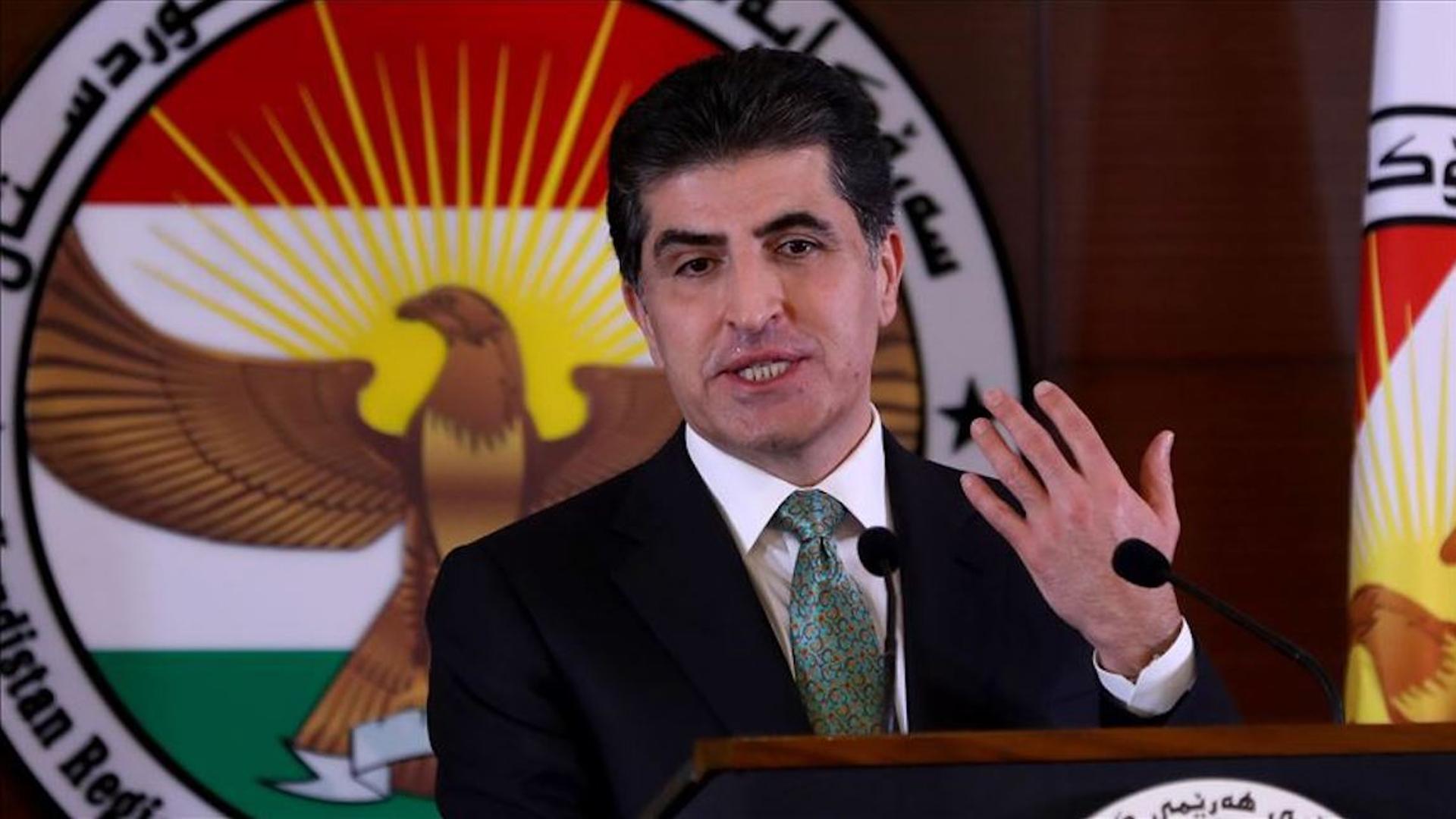The international outcry against the Turkish operation, which aimed to eradicate YPG presence from border areas in northern Syria, was based on one false premise: that the operation is targeting ‘the Kurds’, not terrorists. Now, Nechirvan Barzani, a powerful Kurdish leader, in Iraq has said that the Turkish military action has nothing to do with the Kurds, but is aimed at the PKK.
“Turkey’s problem, in the beginning, was not Kurds in Syria, it was the PKK. They were clear in saying one thing: ‘We cannot bear seeing the flag of the PKK on our borders with Syria,’” Barzani said, during a panel organised by the Erbil-based Middle East Research Center (MERI).
The YPG is the Syrian wing of the PKK, which has waged a decades-long terror campaign against the Turkish state, leading to tens of thousands of deaths across the country.
“Turkey had one demand, for Kurds to distinguish themselves from the PKK. Unfortunately, the PKK wanted to get legitimacy through Syrian Kurds,” Barzani said.
Barzani believes that the Turkish operation eventually happened “because of this wrong policy” conducted by the YPG in northern Syria.
The YPG has claimed large territories across northern Syria, manipulating the Syrian civil war as a pretext to form so-called ‘cantons’ in mostly Kurdish-populated areas.
The terror group took advantage of its longstanding relationship with the Assad regime to rule over Syrian Kurds, whom Damascus trusted to limit Kurdish opposition to the regime after reaching a deal with PKK leadership, located in northern Iraq’s Qandil mountains.
In exchange, the YPG helped Damascus defeat fierce opponents of the Assad regime. Both the YPG and the Assad regime collaborated on several fronts, assassinating more than 50 prominent Kurdish political figures across northern Syria since the beginning of the civil war in 2011.

In his most recent statement, Barzani is referring to PKK-rule imposed on Syrian Kurds across northern Syria’s territories. The PKK has a long history of assassinations in Turkey, Syria and Iraq, where the group’s opponents, and members who wanted to leave the terrorist organisation, have been killed by the leadership.
Mashal Tammo, the leader of Syria’s Kurdish Future Movement (SPKS), who was on good terms with Barzani’s Kurdistan Democratic Party (KDP), was one of the victims of the collaboration between the PKK and the Assad regime.
Tammo established his party in 2005, pulling a lot of support from Syrian Kurdish communities and also other ethnic groups because of his inclusive approach and strong opposition to the anti-democratic ways of the Assad regime.
The movement was also against the PKK’s influence in northern Syria. Tammo was killed in October 2011, allegedly by Assad’s hitmen. The PKK was accused of helping the team to conduct the assassination.
Both of Tammo’s brothers, who are still influential in northern Syria, have been forced to leave the country, living in Turkey in exile. During a TRT World interview, Abdulaziz Tammo voiced support for the Turkish operation saying that the YPG is not comprised of Syrian Kurds.
Barzani versus PKK in northern Iraq
The powerful Barzani family and the Iraqi Kurdish region have traditionally cooperated with Ankara on a number of occasions, where Turkey was fighting with the PKK in northern Iraq.
Since the 1980s, Turkey has conducted several cross-border operations in northern Iraq to eradicate PKK camps and groups from border areas. Barzani’s peshmerga forces have supported most of the Turkish operations against the PKK, saying that the terror group has been illegally staying in northern Iraq without any permission from the regional government.
“Relations between Barzani and Turkey have enormous importance to limit PKK activities,” said Cevat Ones, the former deputy director of the Turkish intelligence agency, in a January interview.
Massoud Barzani, the leader of the KDP, who was the previous president of the Kurdish regional government (KRG), had also publicly called on the PKK to leave northern Iraq.
However, the KRG, a long-divided government between the Patriotic Union of Kurdistan (PUK) and the KDP, which is the product of Kurdish factionalism, has struggled to expel the PKK from northern Iraq. Working with Barzani, Ankara established several military posts in the region to counter PKK threats against its national security.
After an attack against the Turkish military base in northern Iraq in January, Nechirvan Barzani, who is the nephew of Massoud Barzani, again voiced the regional government’s opposition to the PKK presence in northern Iraq, stating that the terror group was responsible for causing civilian casualties.
“We don’t accept the use of our land to threaten the security of our neighbours. Our people are paying the price of using our territory to threaten the security of our neighbours. PKK is using our land to target our neighbours, and our people are paying the price of it,” said Barzani, during a press conference in Erbil at the time.










Discussion about this post